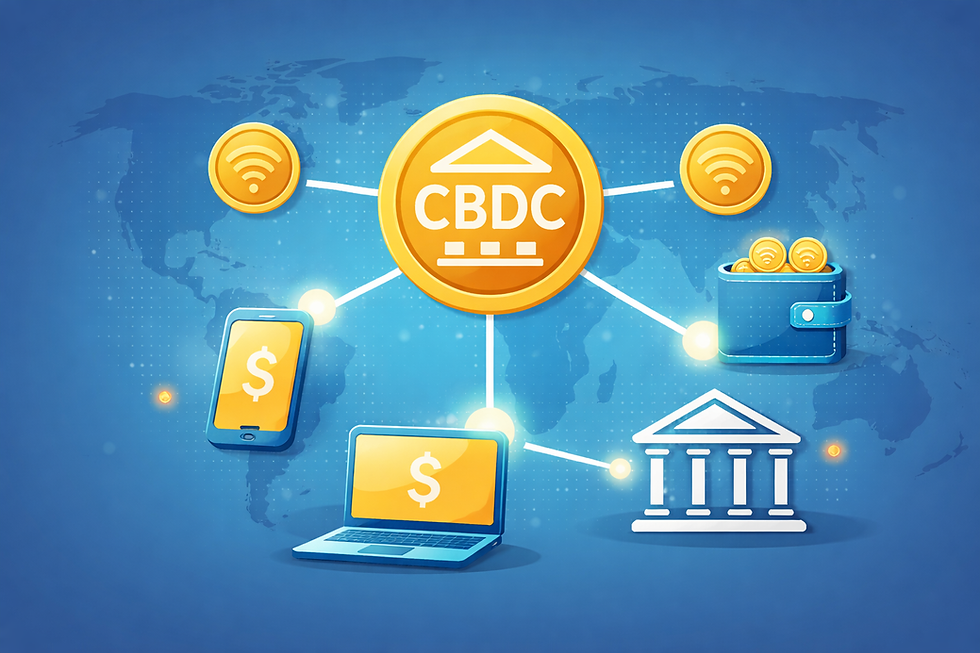What Impacts Consumer Spending
- Vivan Mittal
- Sep 27, 2025
- 4 min read

By Vivan Mittal
Consumer spending, or funds that households spend on goods and services, is the most powerful force in any economy. It can rise or fall for a myriad of reasons. Most significant among them are perhaps tax, inflation, consumer confidence, and fiscal policy of the government. All impact the amount of disposable income individuals have, how much faith they have in the future, and what they spend it on.
The most obvious effect of consumer expenditure is taxation. There are all sorts of taxes and they vary in terms of their effects on expenditure. Income tax, for instance, is withheld from wages and salaries. With increases in the rates of income taxes, fewer incomes are available to consumers to spend on products and services and thus they spend less. Corporations pay corporate tax but its impact reaches consumers. As the corporate tax rises, companies can pass on the burden or cut expenses in form of higher prices. Consumption taxes like value-added tax (VAT) or sales tax are imposed upon the final price of good and service. Property tax, although not immediately related to buying, nonetheless diminishes the cash that remains with households after the payment of such bills. Lastly, on demerit goods like , alcohol, or cigarettes, good that are inelastic in nature government aims to increase the price of such commodities and lower their consumption. Together, taxes decrease consumers' purchasing power both indirectly and directly, and higher or more general taxation tends to be associated with lower family expenditures.
Another strong driver of consumer expenditures is inflation. Inflation is an increase in the general level of the price of goods and services over a period of time. If inflation is big, an identical amount of money purchases fewer things, lowering purchasing power directly. For households whose incomes do not increase as rapidly as prices, real income declines and they have to reduce their consumption. Inflation creates uncertainty as well. If individuals expect prices simply to continue rising, they will postpone buying big items or, on the other hand, save. All these ways through which inflation dismembers confidence and decreases family expenditure cannot be overstated.
Consumer confidence cannot be overstated. Confidence is an indication of whether parents are pessimists or optimists about the economy and their own personal economic future. If individuals are optimistic about better opportunities for employment, future wages, and stable prices, they will invest in big-ticket items like cars, houses, or refrigerators. But when confidence is low — because households worry about losing their jobs, because there's a recession on the way, or because politics are shaky — households restrain even when incomes don't. That makes consumer confidence self-fulfilling: if people have low confidence, they restrain on spending, and if people restrain on spending, companies produce fewer things, which can have the effect of cooling the economy or lowering the GDP. Experiments continually confirm that consumer confidence indicators are good indicators of changes in household consumption, and therefore this is something companies and governments should be on the lookout for.
Government fiscal policy also directly affects consumer spending. Fiscal policy involves taxation and government expenditure. In implementing expansionary fiscal policy, governments are able to reduce taxes, raise government expenditure, or implement such transfers as unemployment and welfare payments. This serves to boost the disposable incomes of households and move them to spend more, thereby boosting the economy, especially in a recession. In contrast, contrationery fiscal policy, nonetheless, achieved through the vehicle of increased taxation or lowered public spending, diminishes household spending capacity and aims to curtail demand. Governments will in some instances employ contractionary mechanisms in an attempt to dampen inflation
Automatic stabilizers in fiscal policy help manage consumer spending without requiring new government actions. During a recession, as incomes fall, tax revenues decrease, and government spending on unemployment benefits increases, which helps boost family income and prevent a significant decline in spending. Conversely, in an economic boom, higher incomes lead to increased tax revenues and reduced need for benefits, helping to control excessive spending. Economic factors like inflation and taxation are interconnected; for instance, high inflation combined with income taxes can squeeze real incomes. Families may also save more if they anticipate future tax increases due to current budget deficits.
Overall, consumer spending is highly responsive to the economic situation, but changes in government policy take time to implement, while inflation affects spending more quickly
Consumer spending will most likely be impacted by a mix of fiscal policy, tax, inflation, and consumer confidence. Taxation increases make disposable incomes low and increase the prices of goods. Inflation reduces purchasing power and is causing uncertainty. Self-confidence leads to whether or not individuals are well off enough to spend or save, instead. Fiscal policy, both explicit and implicit, acts to bring in or limit spending on the basis of economic need. In the real world, these forces combine and cross over each other, which is why consumer spending changes so unpredictably over time. It is essential for policymakers and companies to predict the movement of demand by consumers if they want to achieve quality growth.
Bibliography



Comments